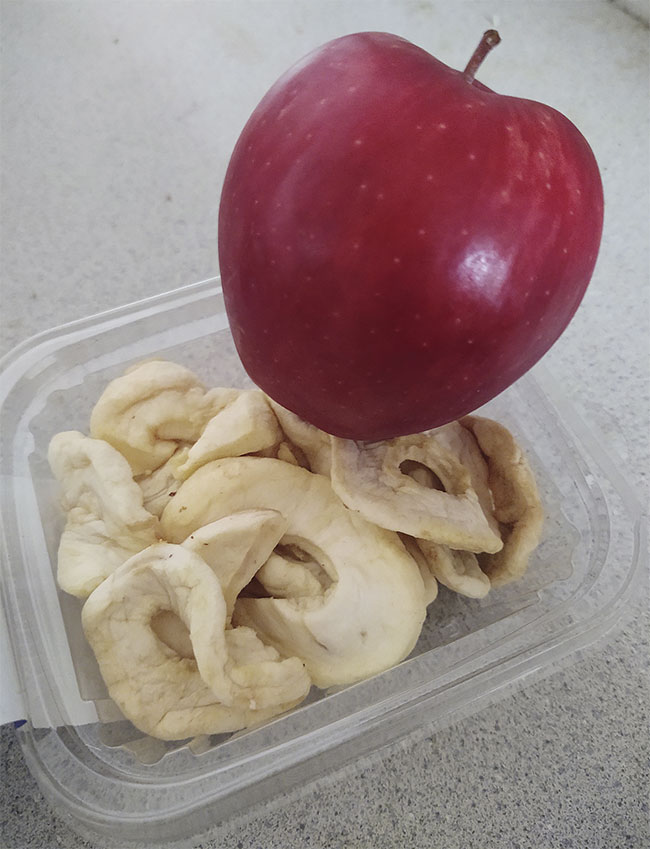Health-conscious consumers are placing increasing demands on food producers for both variety and freshness, while producers, in turn, seek convenient, sustainable solutions that will allow them to offer both. Food producers are branching out with technologies such as NIR spectroscopy to unite the wants and needs of grocers and their hungry patrons by ensuring the consistent quality of the dried fruit items on their shelves.
Eating fruits and vegetables provides numerous health benefits, but the high moisture content of these crops often leads to swift spoilage. To ensure that fruits and vegetables will last on the shelf and that they are ultimately consumed, many producers employ an air-drying process, as opposed to more time-consuming oven drying. Various flavored coatings are also added to enhance taste and variety. Unpeeling how well this air-drying process has been accomplished has found its root in optical technology.

NIR spectroscopy was used to monitor the consistency of the moisture content of apple chips during the drying process. Courtesy of Photonics Media.
Information about the amount of moisture — as well as sugar, fat, and protein — in a food item can be found in the NIR region. NIR spectroscopy is used to determine the contents of a wide variety of products, said Mohammed Kamruzzaman, assistant professor of food and bioprocess engineering at the University of Illinois at Urbana-Champaign. The technology enhances the speed and accuracy of measurements.
“NIR is being widely commercialized and used in the food/pet food industry for various products,” he said. “For instance, Nestlé Purina uses NIR for evaluation and quality check of ingredients. ADM [Archer-Daniels-Midland] uses NIR as an analytical tool for screening raw materials and final products. Almost all food industries use NIR nowadays.”
Kamruzzaman and his research team used portable NIR spectrometers to monitor the moisture content in apple chips, both with and without flavored powder coatings, during the air-drying process. The goal was to develop a predictable model to measure the consistency of results, which are captured by machine learning, in subsequent uses of the process.
In preparation for the study, the team grabbed for the fruit within reach and purchased apples at a local market. They washed them and cut them into 3-mm slices. To coat some of the slices, fruit powder and acetylated monoglyceride were used. A single-channel hot-air dryer with six sections was used to dehydrate the fruit. Finally, the researchers used a miniaturized Texas Instruments NIR spectrometer to perform scans in the 900- to 1700-mm range. Each sample was scanned 32× for 7.74 s.
“The spectra obtained while analyzing apple slices showed only a few strong absorption peaks centering at around 970 to 1000 nm, 1200 nm, and 1450 to 1475 nm, and all of these are related to sugar and water bands mainly, which are in fact the major constituents of apple slices under study,” Kamruzzaman said.
Spectral information was gathered at various points of the drying process. Predictably, absorption decreased and then stabilized. Coated samples took more time to dry. Principal component analysis was used to establish a baseline of data at regular intervals for future models of analysis. The NIR technology was able to distinguish between coated and uncoated samples. And it’s far more reliable than poking at fruit in the grocery store, as many shoppers do.
So, inquisitive consumers may want to consider how spectroscopy was used in the manufacturing of their favorite snacks when examining the labels of their favorite snack foods. And dried fruit may also help families with young children find a convenient way to eat a healthier diet. Dry perhaps, but tasty.